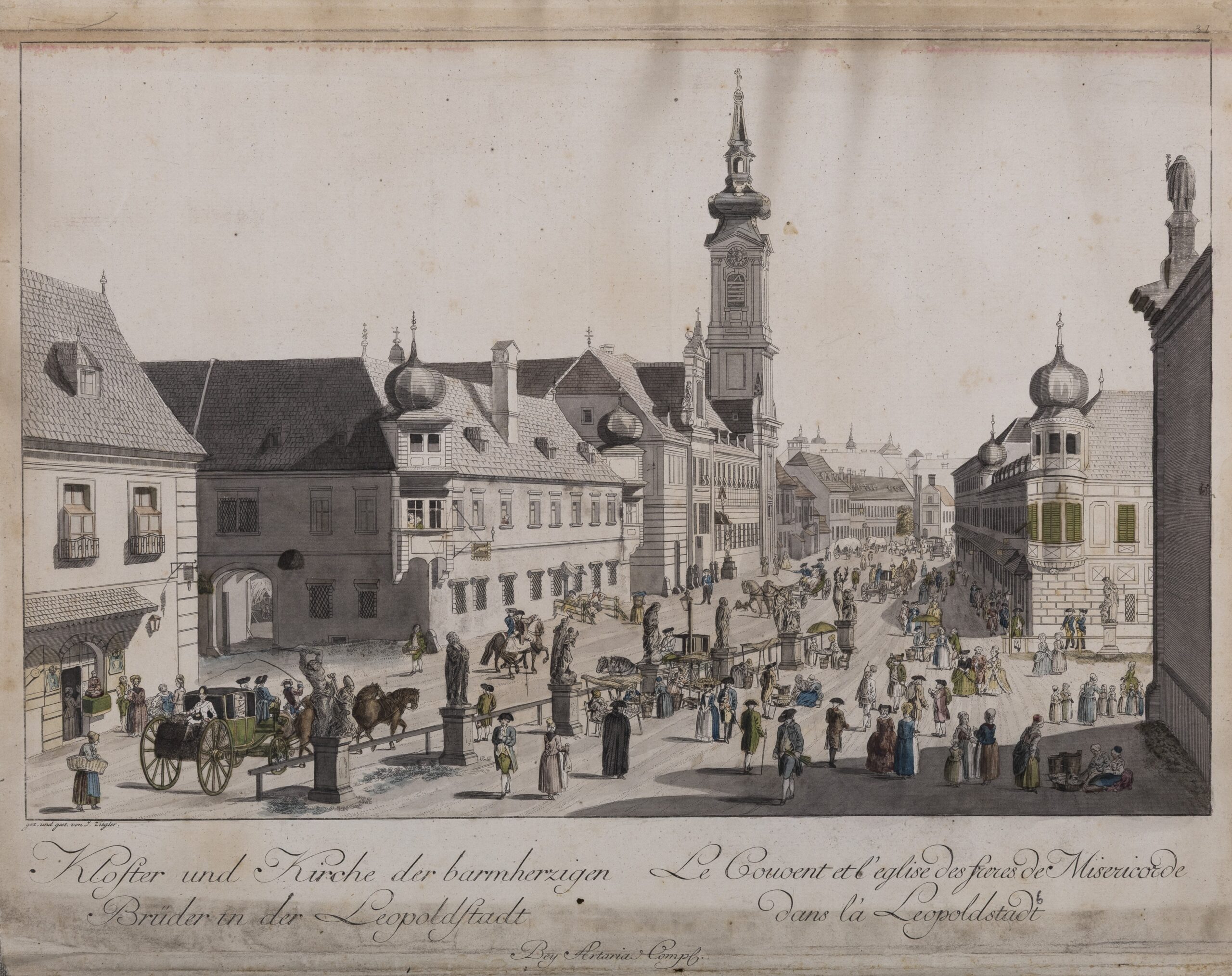The Pozsony nobleman from the Castle of Raby
Mátyás Ráby starts his Autobiography by claiming he was born in Pozsony (Pressburg, now Bratislava) on 21 September 1752. He reveals little of his family, saying that his roots go back to the castle of Raby, near Prague, and that his ancestors’ loyalty to the prince was rewarded with lands between the Rába and Mura rivers. He lost his parents in his ‘early years,’ and was sent to Vienna at the age of three, where he studied until he was twelve. It was in a Viennese school that he met Joseph II. He later ‘returned to his homeland’ to complete his studies. He claims to have studied law in Buda, Pozsony, Kassa (Košice), Eger and Pest, though he does not tell at what schools. He then was an apprentice lawyer for three years, often visiting Vienna, where the emperor encouraged him to seek work at the Hungarian Chamber. In 1773, he was employed as a junior clerk at the Chamber, but was soon dismissed.
In his Autobiography, he traces his personal relationship with Joseph II back to his childhood, claiming the emperor took notice of him in Vienna. In later years, writes Ráby, he was granted admission to the Hofburg at practically any time—he was the one who suggested the idea of the 1781 Edict of Tolerance to the emperor. On one occasion he was received by Joseph II in the company of Maria Theresa:
‘The Empress returned my petition together with a gift of a flat gold tobacco box, 50 newly minted pieces of gold and a hunting watch set with brilliants.’
Ráby’s real background
The testimonies in the records of the lawsuit against Ráby that can be found in the Pest County Archives include his own statement. In 1787, he stated that he was born in Királyfalva (Königsdorf), Pozsony County, and that he was aged 34 and was unmarried. The surname Raab/Raby does not appear in the birth registers of Königsdorf at the time in question, and no child named Mátyás was born in the village on 21 September 1752. It is certain that he was not a nobleman: he did not sign the document as Mathias de Raba (and it would have been unusual for a nobleman to be named after a river), and he is addressed by his first name (as tu). There is no trace of his family in the register of the nobility. Although it was common at the time for names to be inconsistently spelled, it is conspicuous how he is variously called Raby or Raab, sometimes in the same document. His explanation of his name as it appears in his Autobiography (Matthias Raby von Raba und Mura) suggests that the noble family living in the Czech castle of Raby moved, over the course of time, to a place between the Rába and Mura rivers, thus justifying the name on two accounts.
There is no evidence of his studying law at any of the universities in the cities he mentions. In 1766, he probably enrolled at the Jesuit grammar school of Pozsony as Matthaeus Raab, and attended it for a year; in 1768, he studied philosophy at the Piarist Art Lyceum in Pest. Nor can he be found on the list of students at the Jesuit grammar school or university of Kassa.
In 1773, he was indeed employed at the Hungarian Chamber’s legal department as a junior clerk, and he learned about the institution of the ‘denouncer’s third,’ which he came to regard as a source of income. Because the practice was in conflict with his position, he had others write his denunciations and then he shared the reward with them. He was caught copying documents, stealing paper and writing utensils (crimes, he claims in his Autobiography, that were committed by others). He was eventually dismissed and he ended up in Nyitra (Nitra), impoverished, trying to support himself by collecting debts.
Ráby introduces the theme of his personal acquaintance with Joseph II only later in his book, not being a confidant of the emperor from the start. He always addressed his petitions to the emperor but there is no archival evidence of his ever meeting Joseph II in person or of his working for the emperor in Vienna.
Enter Master Matyi
In Jókai’s novel, Master Matyi is a Szentendre-born nobleman, an ‘insider’ with access to the emperor’s innermost circle. What exactly did he do there? Ábrahám, the Jewish man in Szentendre, ‘had no idea.’ The 24-year-old, taciturn, patient gentleman was (unlike real-life Ráby)
‘a lad with a fine, smooth face and a complexion as delicate as a young lady’s; he had powdered hair and wore a green silk coat with red lapels, a bright-coloured flowery waistcoat, […] silk stockings and buckled shoes. [He also wore a watch ribbon with a] medallion, a telescope and a seal […].’
The Ráby portrayed by Jókai is no ordinary character: he does not accept money, does not drink wine, has no debts, does not gamble and has no good friends or lovers. The hero who enters the scene is an irreproachable character who indignantly rejects the coins inside the carved wooden pear which Ábrahám gives him for pulling strings with Joseph II. Jókai added a father to Ráby’s background story, a nobleman called István Ráby, who ‘had shed his life so often in defence of the nobility’s liberty.’
Elsewhere, Jókai gives Ráby some education: ‘a man of high standing who had been schooled at the Theresianum.’ To further complicate things, Jókai’s Mátyás Ráby, the right-hand man of the Catholic emperor, is a Calvinist. There is also something dubious about his noble family, considering how the relative to help him in Szentendre, his uncle, János Leányfalvi, is a postmaster.

